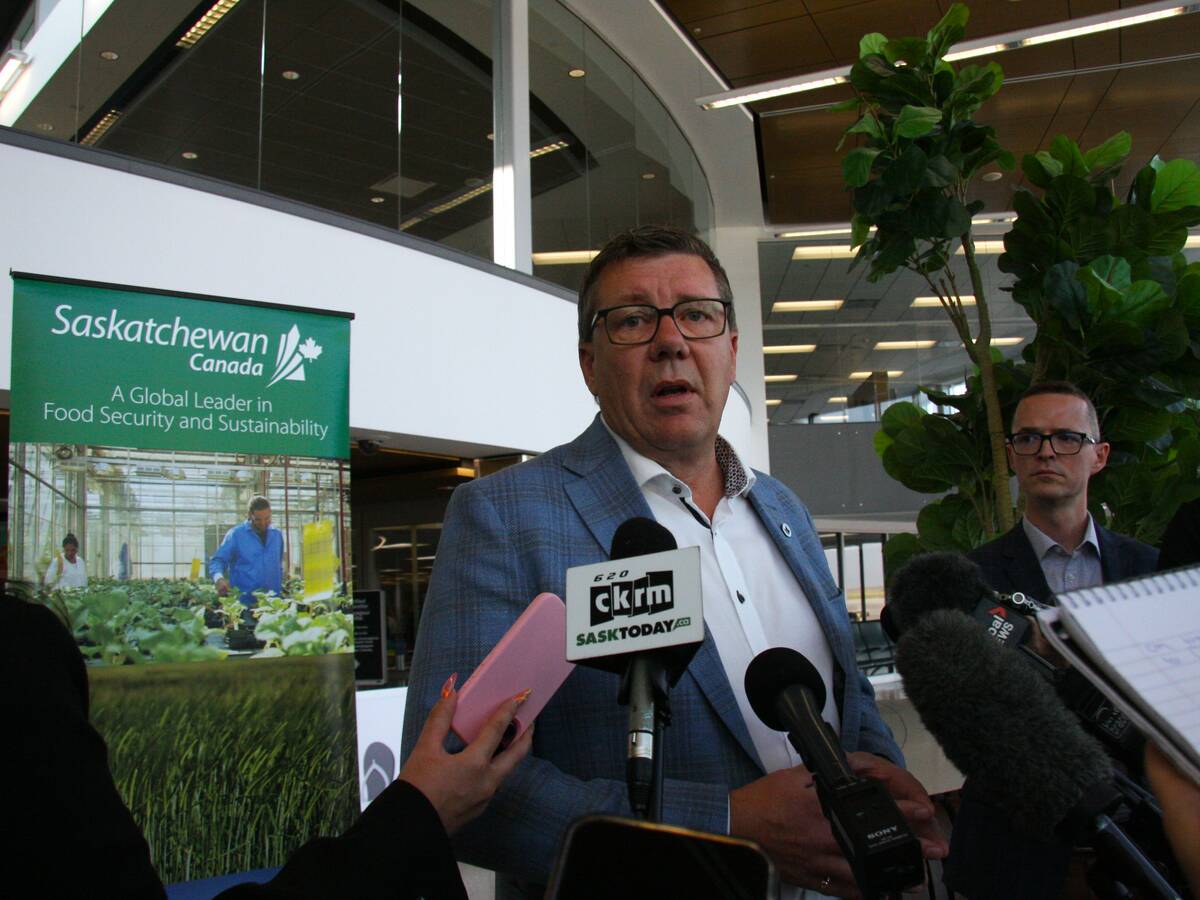Soccer, summer and stalemate in Geneva are leaving the outcome of World Trade Organization negotiations in doubt, says Canadian agriculture negotiator Steve Verheul.
Negotiators from 152 member countries have been working feverishly to close gaps in the hope that ministers can be called to Geneva this summer to make compromises and to close a deal in negotiations started almost seven years ago.
Verheul said a general consensus has emerged on ending export subsidies by 2013 and on sharply reducing allowable trade-distorting domestic subsidies.
However, issues surrounding competition for sensitive products and rules for special products in developing countries remain contentious.
Read Also

Moe says China trip laid ground work
Saskatchewan premier says signals of moving forward on canola tariffs can be seen in moves from Chinese and Canadian governments
Although the official Canadian position is to offer no compromise on reducing protections for supply managed sectors, the negotiator said a deal likely would require both higher imports through an expanded tariff-rate quota and a reduction of at least 23 percent in over-quota tariffs.
As well, many difficult issues remain in the non-agricultural talks, said Verheul.
“They would only call in ministers if there was a good shot at getting a deal,” he said May 2. “There has been talk of ministers around May 26-28 but I think that is slipping into June. I think the chances of this happening are less than 50 percent.”
At least one week in June is impossible since a European soccer tournament June 7-15 means most of the hotel rooms in Geneva are booked.
With the looming European summer holiday in August and the American election campaign officially starting in September, Verheul believes June is the last window open to get a deal this year. If not, talks could be put on hold for several years.
“I believe if we get into July without a deal, it will be too late,” he said. Not enough time would remain to work out all the details of a trade agreement in 2008 and after that, the political power of WTO skeptics is expected to grow.
In the summer, WTO-skeptical France takes over the leadership of the European Union and in the United States, the November election could produce a more strongly Democratic Congress and a Democrat president less interested in a WTO deal than the Republican administration.
Meanwhile, Alberta agriculture minister George Groeneveld is in Geneva this week lobbying negotiators to sign a deal. Representatives from Grain Growers of Canada also are around the WTO talks this week to support Groeneveld’s arguments and to insist that Canadian agricultural exporters need a strong new deal that will increase their access to foreign markets.
In a statement issued in Edmonton announcing the $23,000 trip, Groeneveld said he is going to defend Alberta farm interests.
“It is critical that the final agreement secures new markets for Alberta products, eliminates export subsidies and significantly reduces trade-distorting farm support in other countries.”














